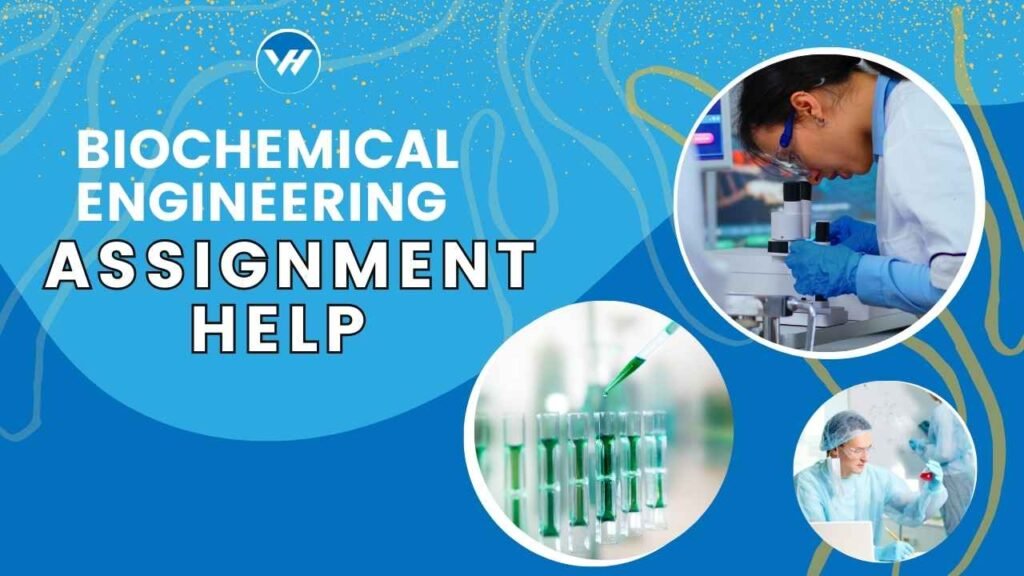Biochemical engineering is a fascinating field that combines principles of chemical engineering with biological sciences. It focuses on designing processes and systems that utilize biological organisms or systems to produce valuable products. Whether it’s fermenting yeast for bread or developing new pharmaceuticals, biochemical engineers are at the heart of groundbreaking innovations.

Biochemical engineering plays a crucial role in various industries, including healthcare, environmental protection, and energy production. It’s instrumental in developing new drugs, optimizing biofuel production, and creating sustainable methods for waste management. As such, mastering this field is essential for anyone aspiring to make a significant impact in science and industry.
Table of Contents
ToggleChallenges in Biochemical Engineering Assignments
Complexity of Biochemical Processes
Biochemical engineering assignments often deal with complex processes that integrate chemistry, biology, and engineering. Students must understand the intricacies of biochemical reactions, metabolic pathways, and system designs. This complexity can make assignments particularly challenging.
Integrating Engineering and Biological Concepts
One of the main hurdles in biochemical engineering is blending engineering principles with biological knowledge. Students need to grasp both the engineering aspects, like fluid dynamics and thermodynamics, and biological concepts, such as enzyme kinetics and cellular metabolism. This integration can be daunting but is crucial for successful assignments.
Keeping Up with Technological Advances
The field of biochemical engineering is continuously evolving, with new technologies and methodologies emerging regularly. Staying updated with these advancements and incorporating them into assignments can be overwhelming, but it’s essential for producing relevant and accurate work.
Why Seek Assignment Help?
Time Management and Deadlines
Balancing coursework, projects, and personal life can be tough, especially when assignments are due. Seeking help can alleviate some of the pressure, allowing students to manage their time more effectively and meet deadlines without compromising on quality.
Understanding Complex Concepts
Biochemical engineering concepts can be intricate and challenging to grasp. Professional help can provide clarity, explain difficult concepts in simpler terms, and guide students through complex problems, enhancing their understanding and confidence.
Improving Grades and Academic Performance
Seeking assistance with assignments can lead to better-quality work, which translates to higher grades. Professional help ensures that assignments meet academic standards and requirements, contributing to overall academic success.
Types of Biochemical Engineering Assignments
Laboratory Reports
Laboratory reports are a common type of assignment in biochemical engineering. They require detailed documentation of experiments, including objectives, methods, results, and conclusions. Accurate and thorough reporting is crucial for demonstrating understanding and analytical skills.
Research Papers
Research papers require in-depth investigation into specific topics within biochemical engineering. They involve reviewing existing literature, conducting experiments, and presenting findings. Strong research and writing skills are essential for crafting a high-quality paper.
Design Projects
Design projects focus on creating and optimizing biochemical systems or processes. Students must apply engineering principles to design solutions, often involving simulations, calculations, and evaluations. Creativity and technical expertise are key components of successful design projects.
How to Get Effective Biochemical Engineering Assignment Help
Finding the Right Tutor or Service
Choosing the right tutor or assignment help service is crucial. Look for professionals with expertise in biochemical engineering who can provide tailored assistance based on your needs. Reviews and recommendations can guide you in selecting a reputable service.
Using Online Resources and Tools
There are numerous online resources and tools available for biochemical engineering students. Websites, forums, and educational platforms offer valuable information and assistance. Utilizing these resources can complement professional help and enhance your learning experience.
Collaborating with Peers
Working with classmates or forming study groups can be beneficial. Collaborative learning allows for sharing knowledge, discussing challenging topics, and providing mutual support. It’s a great way to gain different perspectives and tackle assignments effectively.
Benefits of Professional Assignment Help
Enhanced Understanding of Subject Matter
Professional help provides a deeper understanding of biochemical engineering concepts. Tutors and services can explain difficult topics in a more digestible manner, helping students grasp complex ideas and apply them effectively.
Better Grades and Academic Success
High-quality assignment help can improve grades by ensuring that work is accurate, well-structured, and meets academic standards. This, in turn, contributes to overall academic success and a stronger academic record.
Reduced Stress and Improved Time Management
By delegating some of the workload, students can reduce stress and manage their time better. Professional help can make assignments more manageable and less overwhelming, leading to a more balanced and productive academic life.
Tips for Successful Biochemical Engineering Assignments
Break Down the Assignment into Manageable Parts
Dividing assignments into smaller, manageable tasks can make the work less daunting. Create a checklist or outline to organize your approach and tackle each component systematically.
Research Thoroughly and Use Reliable Sources
Comprehensive research is crucial for high-quality assignments. Use reliable and up-to-date sources to gather information and support your arguments. Proper citation of sources is also essential for academic integrity.
Follow a Structured Approach
A well-organized assignment is easier to read and understand. Follow a clear structure, including an introduction, body, and conclusion. Use headings and subheadings to break up the content and guide the reader.
Seek Feedback and Revise
Don’t hesitate to seek feedback from peers, tutors, or professors. Constructive feedback can provide valuable insights and help you make necessary revisions. Reviewing and refining your work ensures it meets high standards.
Conclusion
Biochemical engineering is a challenging but rewarding field that combines the best of biology and engineering. Navigating assignments in this discipline can be demanding, but with the right support and strategies, students can excel. Seeking professional help, utilizing available resources, and applying effective study techniques can make a significant difference. Embrace the challenges, and let your passion for biochemical engineering drive you towards success!
FAQs
What is biochemical engineering?
Biochemical engineering is a branch of engineering that focuses on the design and development of processes that use biological systems or organisms to produce goods and services. It combines principles from chemical engineering with biological sciences.
Why are biochemical engineering assignments so challenging?
Biochemical engineering assignments can be challenging due to the complexity of biochemical processes, the need to integrate engineering and biological concepts, and the rapid advancement of technology in the field.
How can I find a reliable assignment help service?
To find a reliable assignment help service, look for services with positive reviews, experienced professionals, and expertise in biochemical engineering. Recommendations from peers or academic advisors can also be helpful.
What are the common types of biochemical engineering assignments?
Common types of biochemical engineering assignments include laboratory reports, case studies, research papers, and design projects. Each type requires different skills and approaches, from experimental documentation to problem-solving and design.
How can I improve my performance in biochemical engineering?
Improving performance in biochemical engineering involves thorough understanding of concepts, effective time management, seeking professional help when needed, and actively engaging in assignments. Regular study, practice, and feedback can also contribute to better academic outcomes.





